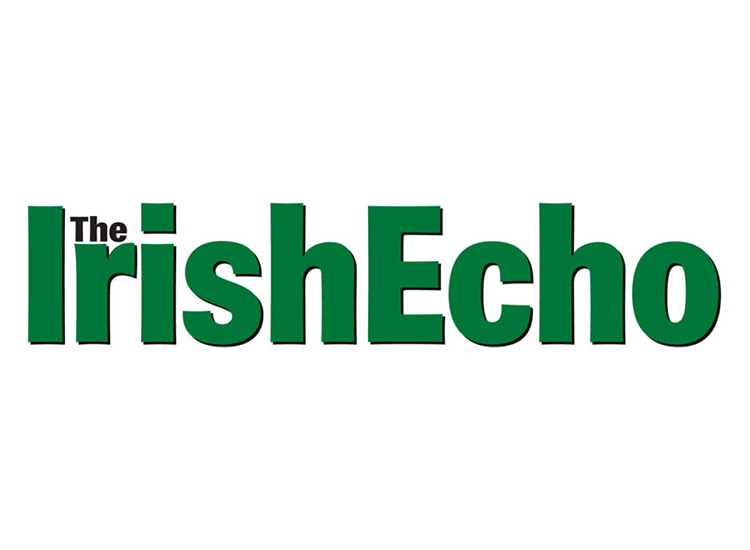The friends believe that the solution might be the large Irish and Irish-American population in the metropolitan New York area. For that's the most likely place to find a genetic match for a bone marrow transplant for the 42-year-old lawyer Holohan, whose parents emigrated from Sligo and Donegal in the early 1960s.
Leading the charge on Holohan's behalf are his longtime teammates from the Village Lions Rugby Football Club. They are organizing a bone marrow registry drive on Saturday, Jan. 23, at the Cornerstone Tavern on Second Avenue (at 51st Street) in Manhattan from 4 to 8 p.m. The organization Be the Match will be on hand to register people by taking cheek swab samples.
The Facebook page set up on Holohan's behalf says: "It costs about $100 for the test to be administered. We're aiming to cover the costs for the charity of all those who lend their cheek at our drive. So if you can spare $100 or more for charity please do, but your cheek is more important than your check. Therefore, if money is tight -- just come on down."
"This is payback. I've known him for 18 or 20 years," said Bret Costain, the club's president. "He's a great guy. He's loyal to his family, his friends and the rugby community."
Adrian McDermott, a Liverpool native who coached the men's 1st team when Holohan was club president, attested to Holohan's kindness and generosity. He had dropped by earlier with some Italian food for McDermott, who is home-bound with a broken leg. "He's taken our sitter home just now. It's really far out of his way," he said, adding that his five-month old twins Liam and Morgan had had a play date with Riley.
McDermott, whose father's family was also from Sligo, said his friend is usually a positive and upbeat person. "He likes to take over the room; that's the lawyer," he said. "But this has taken the legs from under him."
McDermott knows about the issue professionally. He got his PhD while working with the Anthony Nolan Trust in the U.K., which is similar to the National Bone Marrow Program in the U.S. He is now with the International AIDS Vaccine Initiative in Downtown Manhattan.
Asked about the chances of finding a match, he said. "It depends upon Kieran's actual HLA [tissue type] -- if it's found to be common then there is a 1:20,000 to 1:100,000 chance of finding a suitable match, given the populations that volunteer on registries around the world." (It is much more difficult for people of Indian or African heritage, for example, to find a match.)
"But if Kieran, despite being an Irish Caucasian, has an unusual combination of genes that make up his tissue type then the odds would be much less favorable," he said.
It's personal on yet another level for McDermott. His brother-in-law was diagnosed with leukemia some years ago. "He was also 42 and a lawyer," he said. His mother was Irish and his father's family was from the Hebrides, which has a strong Norse genetic influence. A match was not found and he died at the age of 49.
Holohan's family and friends know the stakes. He said that the residents of all 72 bungalows in the all-Irish Four Green Fields complex in the Catskills have helped. "I started going when I was 8," he said. "My mother still has the bungalow there."
Annie Holohan is a qualified nurse from Frosses in Co. Donegal. Patrick Holohan, who was from Tubbercurry, Co. Sligo (and had roots in Tipperary), worked as an electrical mechanic with Pan Am and TWA. He died of pancreatic cancer in 2002.
The couple, who first met at Gaelic Park, raised their four children - Kieran, Rosaleen, Mairead and Thomas - in Chaminade, L.I. Kieran, the eldest, graduated from St John's University, School of Law, in 1994. He worked for nine years as a prosecutor in the Kings County District Attorney's office before forming Gonzalez Oberlander & Holohan LLP with Andrew Gonzalez and Bert Oberlander.
His wife Suzanne gave birth to Riley Mairead on Easter Sunday, April 12. "The year started well and ended badly," said Holohan, who lives in Brooklyn Heights.
"I just thought I was feeling tired," he recalled about seeking medical treatment a few weeks ago. He was immediately put on chemotherapy when diagnosed on Dec. 9, and spent 23 days in the hospital.
"The vast majority of the blood and platelets were donated by rugby club members," he said.
Holohan is almost overwhelmed emotionally by the response.
"I had 254 visits to the hospital. It's amazing. I counted because I wanted to send thank-you cards," he said. "It's been incredible."
Holohan cited several rugby club colleagues for mention: Einstein College of Medicine cancer researcher John Greally, who is from Galway, Michael Farkas, Taylor Dunham, who has done the campaign's artwork and Australian Paull Young.
"Paull is a specialist at web networking and marketing," McDermott said.
"There are others I don't even know about," Holohan said, who is following medical advice and taking time off work.
His friends want to register hundreds in this initial drive. "Think of the number of people that can help," he said.
The facebook page is at:
http://www.facebook.com/event.php?eid=237950897590&ref=nf
For more information on Be a Match and the National Marrow Donor Program, or to become a donor, or to make a tax-deductible contribution linked to Kieran Holohan's name go to www.marrow.org.
The event at the Cornerstone Tavern, 961 Second Ave., begins at 4 p.m. on Saturday, Jan. 23 and continues until at least 8 p.m.









